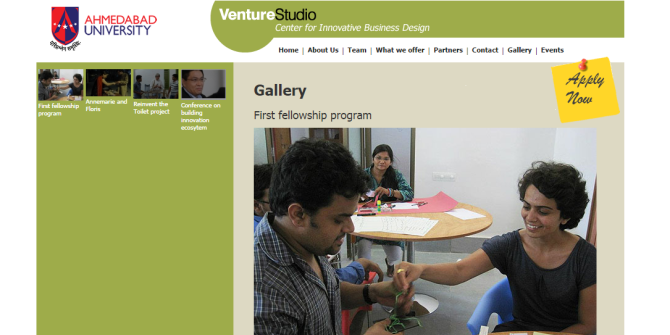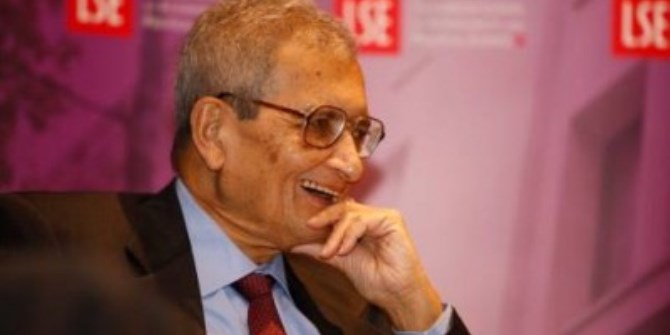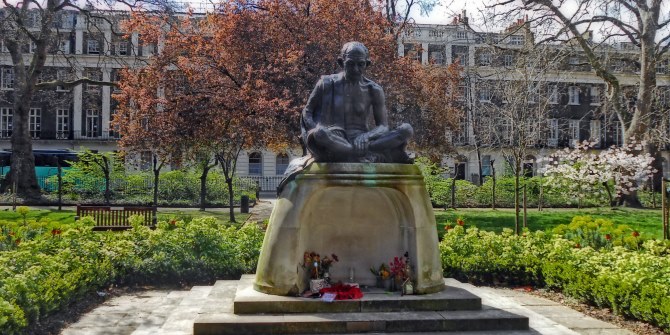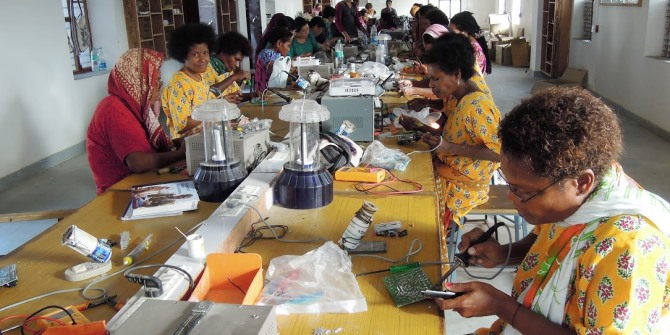 During a recent visit to LSE, Shri Prafull Anubhai, LSE alumnus and Chairman of the Board of Management at Ahmedabad University, was interviewed by Sonali Campion. In part 2 of the interview he talks about his ideas for improving the quality of education in India, and what higher education institutions in India and the West can learn from each other.
During a recent visit to LSE, Shri Prafull Anubhai, LSE alumnus and Chairman of the Board of Management at Ahmedabad University, was interviewed by Sonali Campion. In part 2 of the interview he talks about his ideas for improving the quality of education in India, and what higher education institutions in India and the West can learn from each other.
View part 1 of the interview here.
There is a lot of variation in the quality of educational institutions across India. Cities like Ahmedabad and Delhi have some of the best but how can the general level be improved?
We are taking an initiative in Ahmedabad to promote the idea of an “education cluster”. In a radius of about 10 km we have 35 institutions of higher learning which are nationally and internationally recognised. Today they work in isolation. We are now in a process of forming a society where all these will become members. Then they will begin to share resources, share information about what each one is doing. Gradually they will begin to work together, whether it is a question of student registrations, common research programmes, sharing library resources or sharing public events. These are some of the thoughts around which this cluster will become operational. So over the next five years, this is one task when operationlised I think people will see how you can leverage the synergies which exist in such clusters.
It must be noted there are two ways of going about improving the general quality. You can make an impact through education policy. You can work towards education policy and do some kind of advocacy work. This is one way to impact the overall education scene. But I think that is often not enough. You must also practice and set an example. My priority is to set an example first, then we can talk about policy because then we’ll have greater credibility to influence the policy makers. It’s not that we are right now not engaged with the policymakers, we are. But priority-wise, I want to first build this institution around these ideas which I just mentioned.
Have you seen our tagline? “Global education, at local cost, context and ethos”. When I say global education, it is not that we want to send our students to other institutions or borrow their programmes, it is global quality education delivered in India. At Indian cost. And India context – for example, microfinance is more important than derivatives for our students. So, in addition to providing quality we want to ensure relevance to the context.
So what can India learn from institutions abroad?
I think we need to learn a lot from institutions like LSE, or Harvard, or similar. One is creating an ambience in which we ignite the intellectual curiosity of the students. This is very important. When I was here, or when I was at Harvard, and even now when I visit these institutions, there is an atmosphere in which the students’ intellectual curiosity is ignited. This happens because of the overall ambience, the faculty outlook and research output, the way in which they look at questions, the way in which they engage, the pedagogies they adopt — this is something very important – critical for us to bring into Indian campuses. Of course, skills training also is there. But skills will follow. First and most important is to create this ambiance, to create the kind of questioning spirit – the spirit of inquiry in the minds of students.
And conversely, what can Western universities learn from institutions such as Ahmedabad?
I think that going forward, in the field of education, India will come up with our own brand of institutions, and we’ll come up with new experiments. And I think that will probably make a contribution to understanding the developing world, as far as your institutions are concerned; and understanding our concerns, our scale of problems.
For example, at Ahmedabad we have been developing programmes to support the entrepreneurial spirit of the people. In Gujarat, people are very entrepreneurial. So what we have done is we have established what we call “Venture studio”, which is a centre for innovative business design. This is in collaboration with the Stanford University Centre for Design Research. This is something which has attracted international interest because it’s first of its kind. There are many institutions which have incubators, so once a venture has been designed it is provided with infrastructure and facilities. But this studio offers pre-incubation support. We start with students who say “I want to do something on my own” – that’s all. We then put them through a six-month programme, for which there is no fee. They go through the process of defining a need that they want to address, then developing a prototype, then testing it in the market, coming back, going through an iteration process and then coming to a final venture design. This all happens in six months. It’s been running for three years and four batches have graduated and they are doing very well. There are various ventures at various stages of development. One of them got taken over by a Silicon Valley company, so in a short period something has really happened.

Others recognise that this is something which is very unique. When I was in Australia just eight months back, I mentioned this there to a group of people and one of them said “I want to establish a Venture studio in Australia”. So we talked and he has now established a venture studio in Melbourne. There is also a request coming from Colombia in South America saying they want to establish something similar. This is something that we are trying to do that is likely to spread within India and other countries will notice.
So having studied at LSE, what role do you think the social sciences should play in Indian universities?
One of the purposes of my visit here is to explore how we can introduce social sciences in our university. I mean I’ve experienced it, I’ve learnt a lot, I’m indebted and I want to bring what I got here to Ahmedabad. So my own sense is that the rigor, the academic depth and the breadth that you have here in social sciences is something which is very much lacking in India. And my selfish interest is that I bring it to Ahmedabad!
Do you think that there’s a challenge in India with teaching some of the subjects? Such as history, philosophy, politics. It seems that India is doing very well on the STEM subjects, but not as well on humanities and social sciences.
Yes. My sense is that, as I mentioned earlier, there is a great deal of emphasis on professional education. Interpreted very narrowly, it is not a broad-base professional education. Nearly 70- 80% of students taking MBAs in premier Indian institutions like the India Institute of Management Ahmedabad come from engineering backgrounds. When we trace as to what they studied one finds they had no social science or humanities background and very few had economics background. They are engineers, pure engineers. However, what has been found all over the world is that Engineering MBAs start off at a higher level than the humanities MBAs. But over the years Humanities MBAs overtake them – if you look at the Fortune 500, 200 CEOs come from humanities backgrounds. So I think there is a lesson for us here, that we are looking at professional education very narrowly, we need to adopt a much broader approach.
Cover image courtesy of Ahmedabad University.
About the Authors
 Prafull Anubhai is Chairman of the Board of Management (equivalent to President) at Ahmedabad University. He is a member of the Governing Council of the Ahmedabad Education Society. He is also a member on the Board of Directors of Centre for the Science Technology and Policy and a Trustee of Sri Aurobindo College of Commerce and Management, Ludhiana. In addition, he has been associated with IIMA for more than 40 years as faculty and is on the Board of Governors.
Prafull Anubhai is Chairman of the Board of Management (equivalent to President) at Ahmedabad University. He is a member of the Governing Council of the Ahmedabad Education Society. He is also a member on the Board of Directors of Centre for the Science Technology and Policy and a Trustee of Sri Aurobindo College of Commerce and Management, Ludhiana. In addition, he has been associated with IIMA for more than 40 years as faculty and is on the Board of Governors.








